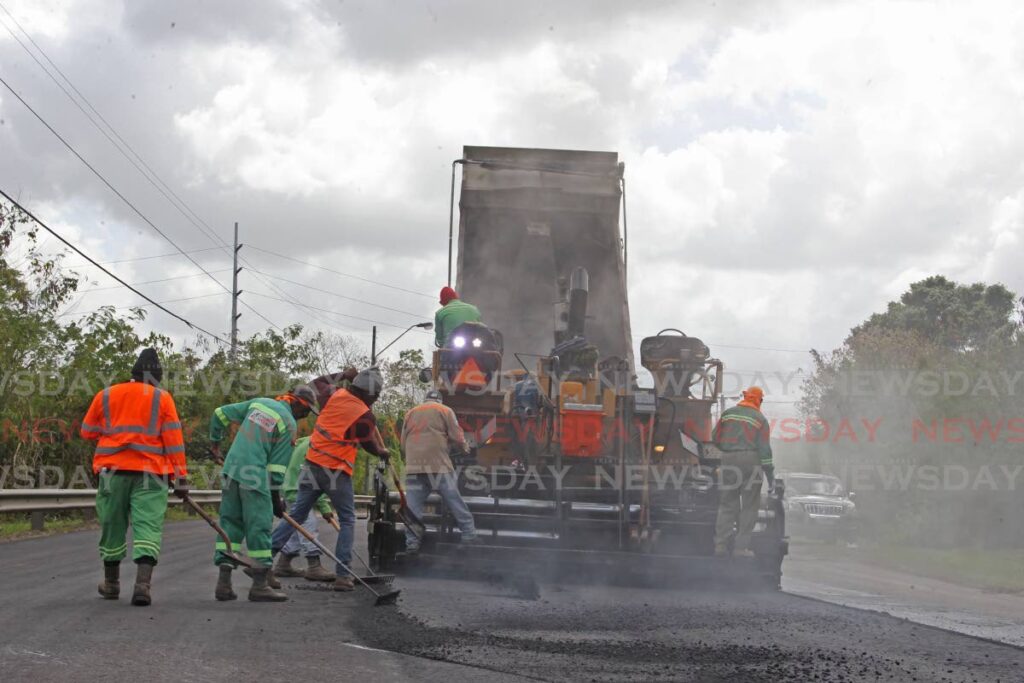Transport Ministry moves to 'protect investment in roads'

The Works and Transport Ministry is set to add two more weight control scales (weigh bridges) which would help "protect" the ministry’s investments in the ongoing nationwide road rehabilitation programme.
On Sunday, line minister Rohan Sinanan said there are currently four scales operating. He cited heavy vehicles as one of the major contributors to damaging the roads.
"The spots (for the scales) are being identified by consultants. The idea is to get the trucks coming out of the quarries or on routes where we would be able to identify the majority of trucks. There are routes trucks have to take because of the location where the raw materials are," Sinanan said.
"We are working with the contractors and suppliers to ensure we are all in this thing together. It is not that we are going out there to penalise anybody. However, we have to protect the investments we are making in the road."
Sinanan spoke to the media during a site visit at Golconda Connector Road, San Fernando, where road works were ongoing by the Junior Sammy Group of Companies.
The minister said more "vigorous" inspection exercises, particularly periodic checks by licensing officers, are expected.
Sinanan said licensing officers and the police are working to ensure that trucks stay on the routes they are licensed for while carrying the weight for which they were registered.
He recalled that in one of the ongoing inspection exercises, 92 of 97 trucks were found to be overloaded. Sinanan pleaded with people in the industry to work together.

Sinanan added,"In the past, we had instances with trucks that were emptying the remaining materials in watercourses."
Junior Sammy, the owner of Junior Sammy Group of Companies, also joined the minister at the site.
Sinanan said the rehabilitation work there was "long overdue," and the outcome would allow people to drive on an acceptable surface.
He promised that repairs on the roads nationwide would not be shoddy as they are taking all precautions to minimise problems.
"We are ensuring the roads are cambered properly for water drainage to take place. We look at all the possibilities of a failure and take it into consideration for a design," Sinanan told reporters.
"It is not simply paving. If we have to strengthen the base, we do that. We mill to ensure the foundations are intact."
Milling is the process by which a machine is used to remove the top layer of asphalt on a road without disturbing its underlying structure or support.
The minister yet again accused the Water and Sewerage Authority (WASA) of adding to the deterioration of the nation’s roads. Leaks under the asphalt weaken the road.
Sinanan added, "Most of the roads are not engineered roads. They were roads that evolved over time, which is why our programme is not simply repaving. It is milling, identifying weak spots in the road, and repairing them."
He called on everyone to "do what is right," which would help minimise infrastructural challenges.
He also gave an update on the Blanchisseuse Road, saying the distance from Maracas to Arima is about 35 kilometres, and it is too long for the ministry to rectify the problems in one or two years.
"The programme for that road started three years ago, and we try to do at least two packages every year. This year we have four packages, two for road paving and two for drainage," Sinanan said.
He estimated that, by the year end, 20 kilometres of work would be done.

Comments
"Transport Ministry moves to ‘protect investment in roads’"